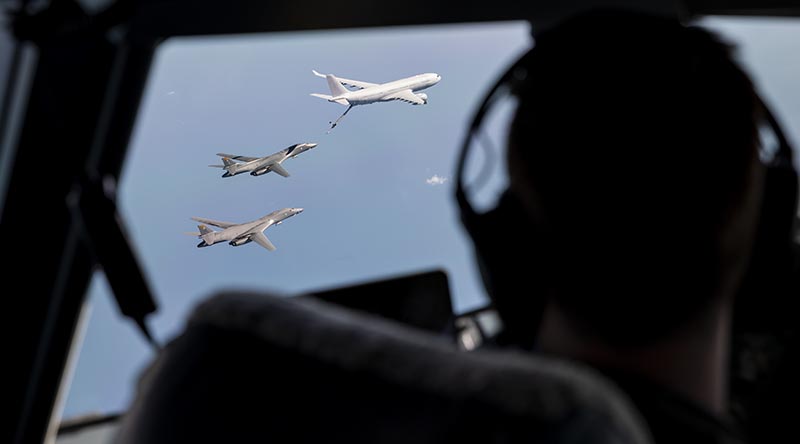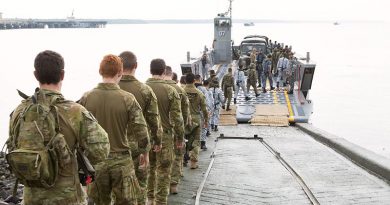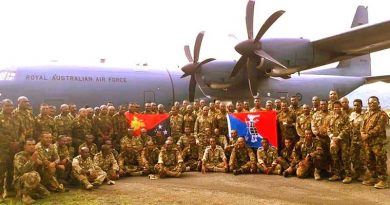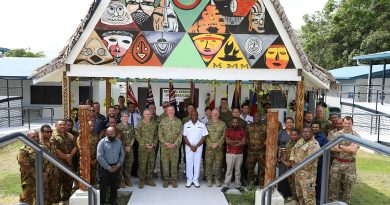B-1B Lancers visit NT for exercise

Two United States Air Force (USAF) B-1B Lancer bombers have swept over the Top End for training with the Royal Australian Air Force.
CAPTION: A Royal Australian Air Force KC-30A Multi Role Tanker Transport aircraft and two United States Air Force B-1B Lancer bombers fly in formation over the Northern Territory, watched by the crew of another RAAF MRTT. Photo by Flight Lieutenant Byron Miles-Ward.
After travelling over 6000km from Diego Garcia in the Indian Ocean, the B-1B crews flew emergency diversion familiarisation training at RAAF Base Darwin.
Their mission included training with RAAF aviators flying P-8A Poseidon and KC-30A Multi-Role Tanker Transport.
This is important to maintaining the bombers’ global reach capability and builds on the AUSMIN 2021 commitment to continue enhancing military cooperation and interoperability between our two nations.
The flying visit coincided with the 10 year anniversary of the first US Force Posture Initiatives (USFPI) in Australia, including the Marine Rotational Force Darwin (MRF-D) and Enhanced Air Cooperation, and 70 years of the ANZUS Treaty.
Air Commodore Stephen Chappell, Director General Air and Space Operations Centre, said the activity allowed American and Australian crews to rehearse multiple combat mission profiles.
“This mission provided RAAF and USAF aviators with an important opportunity to demonstrate their professional mastery, and exercise their interoperability in challenging and realistic conditions,” Air Commodore Chappell said.
“It also gave personnel assigned to RAAF and PACAF Air Operations Centres (AOCs) an opportunity to enhance our interoperability to coordinate, plan, and oversee the execution of these missions from headquarters over 8000 kilometres apart.”
Commonly called the ‘Bone’, the B-1B is the backbone of America’s long-range bomber force, and can carry a conventional payload of up to 34 tonnes of guided and unguided ordnance.
RAAF aviators have trained with USAF B-1B crews during the 2020 Regional Presence Deployment to Guam, and as part of the Enhanced Air Cooperation program in Australia since 2017.
“While we have conducted similar long-range training activities together in the past, this activity differed in the multiple interoperable mission sets being rehearsed,” Air Commodore Chappell said.
“The allied crews executed important training and air-air refuelling mission sets over several hours and many thousands of square kilometres.”
During the mission from Diego Garcia, the B-1Bs rendezvoused over the Timor Sea with two RAAF KC-30A Multi-Role Tanker Transport from Number 33 Squadron.
At an altitude of 30,000-feet, the KC-30A crews used their aircraft’s Advanced Refuelling Boom System to ‘plug in’ with the B-1B’s nose-mounted fuel receptacle.
The transfer of fuel from the RAAF KC-30A provided the B-1Bs with the range to complete their mission.
This exercise builds upon the regular and increasing interaction between Australia and the United States and sets the scene for expanded force posture initiatives in the coming years.
.
.

.
.





